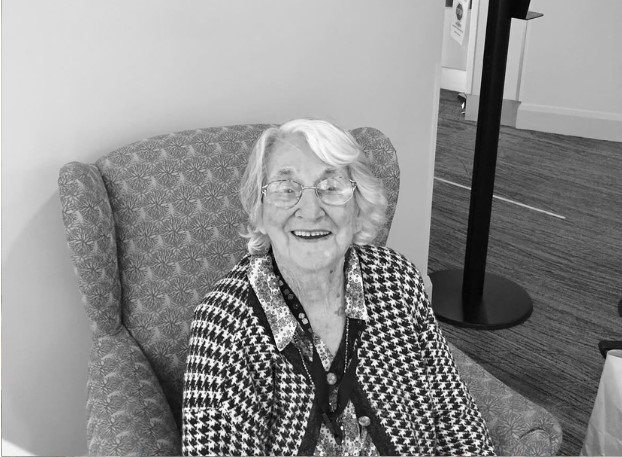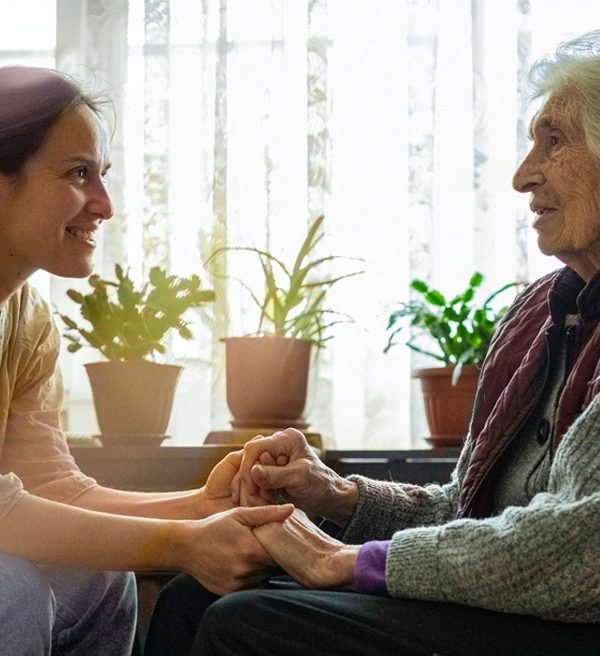Our post-retirement ‘golden years’ are often portrayed as a time of relaxation and enjoyment with plenty of time on our hands to enjoy the things we love. However, for many older adults this period can be overshadowed by struggles with depression.
How do we know if our older loved ones are experiencing depression – and what kind of care and support can we provide to improve their quality of life? We talk to Nilu Morawaka, Baptcare’s Head of Residential Care, for guidance.
Understanding depression in older adults
Depression is not a normal part of ageing yet is a common illness amongst older adults. It can be triggered by various factors, including chronic illness, loss of loved ones, feelings of social isolation and loss of independence. Depression may also occur in the absence of any external factors.
“It’s important to remember that it’s normal to experience ebbs and flows across our moods from day to day,” says Nilu. “But when you or your loved one are experiencing prolonged periods of negativity, poor quality sleep, low mood and loss of interest in previous hobbies and lifestyle activities across several weeks, that can be a sign of depression and the need to reach out for professional advice.”
Risk factors and symptoms
Several risk factors can increase the likelihood of depression in older adults, including:
- Chronic illness: conditions such as heart disease, diabetes and arthritis can contribute to feelings of anxiety and despair
- Loss and grief: the death of a partner, friends or family members can lead to profound grief and depression
- Social isolation: limited social interactions and the feeling of being disconnected from loved ones can be both a cause and a consequence of depression
- Cognitive decline: the onset of cognitive impairments can be both a cause and a consequence of depression.
Symptoms of depression in older adults may include:
- Persistent sadness or anxiety
- Loss of interest in activities once enjoyed
- Changes in appetite or weight
- Sleep disturbances
- Fatigue or lack of energy
- Difficulty concentrating or making decisions
- Feelings of worthlessness or guilt
- A decline in personal grooming and hygiene
- Thoughts of death or suicide.
The unique challenges in residential aged care
Residential aged care is designed to provide care and support for older adults who can no longer live independently. However, the transition to residential aged care can cause significant emotional upheaval if not handled sensitively. The loss of independence, separation from familiar surroundings and reduced social interactions can contribute to feelings of loneliness and depression.
Nilu explains that it’s essential for caregivers and healthcare professionals to be vigilant and proactive in recognising the symptoms of depression in aged care settings.
“At Baptcare, our nurses are skilled and knowledgeable in the early identification of depressive symptoms in our residents,” she says. “They are trained to have the tools to assess and identify depression, and our residential aged care communities offer holistic support and interventions tailored to each individual’s personal recovery.
“Our Living Well Together Model of Care, currently being rolled out across our communities, focuses our care and support on what matters to our residents – what gives them meaning and purpose. We’ve co-designed a vibrant Lifestyle Program with personalised support and activities to keep our residents engaged, occupied and connected to their social networks and with their community,” says Nilu.
Addressing depression in the elderly
Tackling depression in older adults requires a multifaceted approach involving healthcare professionals, caregivers and family members. Here are some strategies to consider if you or your loved one is experiencing depression:
- Counselling: It’s important to seek support and talk to someone else about what’s on your mind. Being able to share your challenges can decrease feelings of isolation and loneliness, so consider speaking to someone rather than bottling up your emotions
- Speak to your medical professional: Discuss what treatments may be most appropriate for you – this may include medication or activities that promote mental health such as meditation, tai chi and other forms of exercise suited to your needs
- Set small achievable goals each day: Sometimes it’s those smaller wins that help propel us on to a more positive path. Think about what an appropriate goal is for you, for example, getting up and having a shower. Maybe it’s the ability to leave the house for a brief period for a shopping trip.
It’s important to understand the unique challenges older adults face and implement comprehensive strategies to address their mental health needs. Ensuring older people can enjoy their golden years with dignity and joy is one of the key drivers behind Baptcare’s approach to senior care. We collaborate closely with health practitioners to provide services built on a foundation of kindness, understanding and compassion.
If you are interested to learn more about our community services, including aged care, call us today on 13 22 78 and talk to our friendly consultants about how we can support you.
Community news
-

How to talk to a loved one about moving into aged care
One of the most challenging conversations we may have with our loved one is about whether it’s time to consider moving into residential aged care. Whether it’s a parent, grandparent, or partner, the topic can stir feelings of resistance and guilt. But when approached with empathy, patience and deep respect for the individual’s wishes, this conversation can become a meaningful step toward greater safety, comfort and connection.
- 18 Feb 2026
-

Hawthorn stars bring footy fun to Abbey Gardens
There was no mistaking the colours at Abbey Gardens Residential Aged Care Community in Warragul this week – brown and gold as far as the eye could see. Residents and staff donned their finest Hawthorn Football Club gear as players and support staff arrived for a visit, chatting with residents, signing autographs and bringing plenty of footy fun.
- 18 Feb 2026
-

Dressmaker, traveller, Bulldogs fan and volunteer – Thelma turns 100!
Thelma Powell, beloved resident and former volunteer at Westhaven, turned 100 on 9th February 2026 with balloons, party hats, and cake! Surrounded by her family, care team, the local MP, and Mayor, as well as a representative from her beloved footy team, the Bulldogs, it was a day to remember.
- 13 Feb 2026

